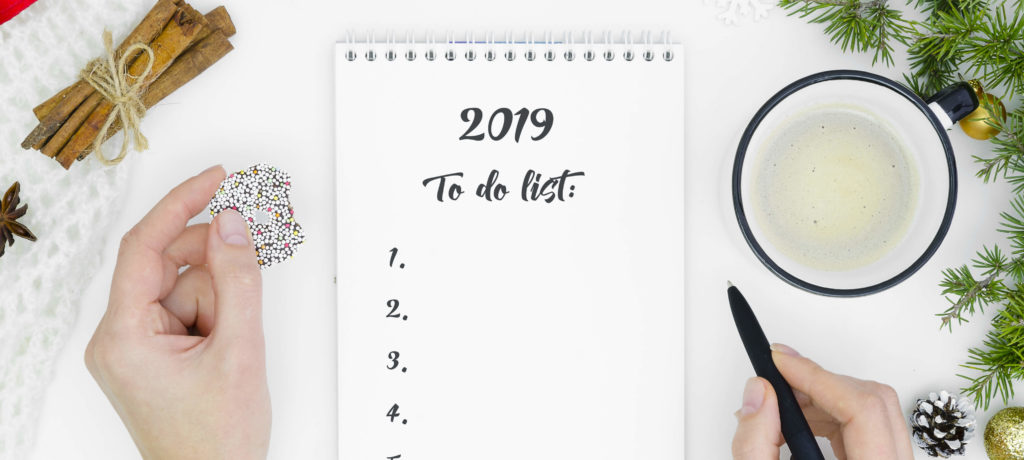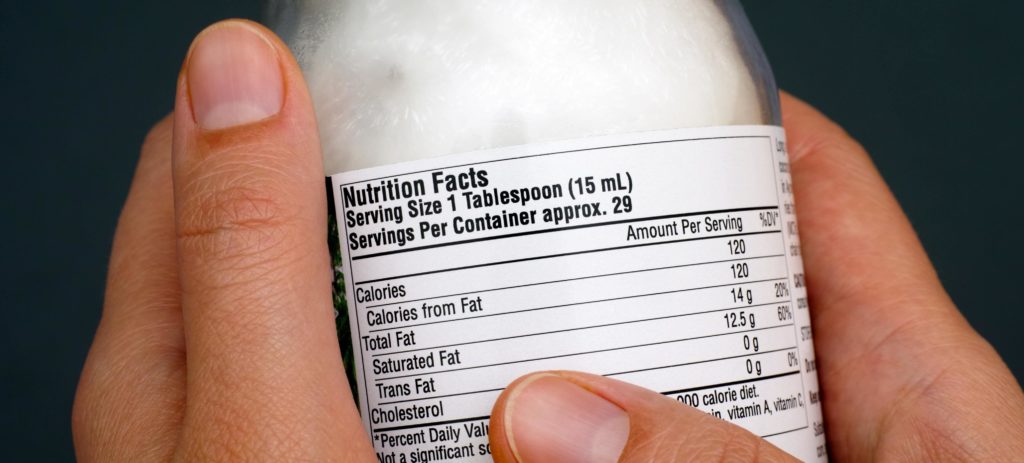

January is the time where we want to make a few changes to the way we live our lives. Whether you’re aiming big or small, choosing what “new year, new you†changes to make can be a committed decision, especially when trying to improve your health.
There’s the fear of setting too many New Year’s resolutions that quickly descend into a burnout. After all, it’s thought that a fortnight into January, people abandon their gym membership along with their intense exercise regime, fall back into unhealthy eating habits, or reach for that bottle of wine after persuading themselves to partake in Dry January.
Don’t set out for failure. Our 12 simple changes will help you find a happier, healthier you. They are simple lifestyle changes that make a difference. Whether you do them all at once or one a month, take baby steps or big leaps, the choice is up to you.
1. Find out what exercise works for you
It’s undeniable that regular exercise is important to health and wellbeing, and getting into the habit can sometimes feel like a chore. However, with the right approach, it’s easy to find an exercise routine you love. You don’t need to do an insanity session or a full body workout every day to get those endorphins going.
The key is finding a regime that works for you, and it’s a good idea to try out a few things to see what sticks. For example, running isn’t for everyone, so even if your friend is trying to set personal best records in a 10K run, listen to your body and what works for you.
Try a jog outdoors, a cardio workout at the gym, pairing up at badminton, or even a dance class – whatever floats your boat. If you feel that you quickly overheat, or you simply just don’t want to break a full sweat, swimming could be for you. Teeming with cardiovascular health benefits and using most of the muscles in your body, swimming can relieve aching muscles or joints and accommodates to most fitness levels.
Finding the right exercise for you can be a case of trial and error, so if it turns out you’re not enjoying those ultimate Zumba sessions, don’t worry – there’ll be something else out there to try.


2. Find out what foods work for you
There’s no shame in declaring that kale smoothies and quinoa salads aren’t for you. Eating healthily doesn’t have to mean eating foods you don’t like, and it’s easy to make simple changes to foods you already love eating.
This change also works for foods you love that just don’t seem to get along with you, no matter how hard you deny it. Whether it’s bread, milk, something more unsuspecting like kale, beef or coffee, or a food that you can’t quite put your finger on that makes you feel unwell, finding out whether you have a food intolerance once and for all could make your year better than expected.
After all, if cow’s milk makes you feel unwell and you have a confirmed food intolerance against this trigger food, there are other alternatives that are on the market, for example: almond milk, rice milk, soy milk, coconut milk, hemp milk, the list goes on.
3. Give your fridge a makeover
Do you find yourself drawn like a moth to the light of the fridge, coming back and forth all evening even though you know you’re not really hungry? It’s time to give your fridge a makeover. Getting rid of those ingredients you can live without is a small but important step to make when trying to optimize your diet.
Plus, stocking up your fridge full of greens and fruits will make you feel healthier already, and is a great way to force yourself into making food that is more nutritious. If you have a sweet tooth, ditch the chocolate bar or packet of sweets for a handful of blueberries or raspberries to satisfy that sweet craving.
4. Start reading labels
This tip is perfect for those out there with magpie tendencies, who find themselves drawn to attractive or stand out packaging, only to get home and find out that the soup you just bought is 2/3 of your daily salt amount.
Knowing what exactly is in your foods will do wonders for your eating habits and is an incredibly easy but beneficial change to make. Are you intolerant and don’t know what you should be looking out for on food labels?


5. Reduce food waste
We all know the temptation the takeaway menu holds when we open the cupboard on a Friday night and don’t feel like eating any of the food we own. However, only buying the food you know you’ll eat, and more importantly, you know you’ll want to eat, is another key change that can help you on the road to good health.
Planning your meals are another way to reduce food waste as you know exactly what to make and eat on specific days, cutting out the impulsive temptation to purchase unnecessary foods. So just because it’s ‘2-for-1’ or half price, don’t feel like you need to stock up, especially if you know that it will only go to waste.
6. Eat less meat
We’re not suggesting that everyone has to go entirely veggie, but the health factors associated with cutting out meat can’t be stated enough. A reduced likelihood of heart disease, lowered risk of cancer and increased chance of weight loss are all benefits associated with eating less meat, not to mention that veggie and vegan eating can be significantly cheaper.
Ali Orr, one of yorktest’s registered Nutritional Therapists, predicts that vegan eating will become part of the mainstream during 2019. We’ll see “meat eaters who want to still eat meat but are happy to eat veggie/vegan for a part of the time and they understand the health benefits,†Ali expresses.
Happy carnivores needn’t worry too much, as simply introducing two meat free days a week could get you into the healthy habit.
7. Get enough sleep
It’s easy to overstate the benefits of sleep, yet getting the right amount can seem increasingly difficult in today’s hectic world. Whether it’s work, children, or an inability to drag yourself away from that box-set you got for Christmas that’s leaving you feeling tired, getting enough z’s should be a new year goal for everyone.
Not only does sleep recharge our bodies, it’s also extremely important for keeping on top of your mental health and wellbeing, with lack of sleep being a big contributor to feelings of stress and anxiety. Your body likes routine and performs best when it knows exactly when you’re hitting the hay and rise and shining. Set yourself a bed time, stick to it, and aim for a good 8 hours every night; that way, you’ll wake up feeling refreshed, and ready to tackle whatever the day might throw at you.
Sounding ambitious? If you’re not sure how much sleep you’re actually getting, or the quality of sleep for that matter, there are some great apps which analyze your sleep quality.
SleepCycle monitors how oftenf you’re in a deep sleep and the irregularity of it. It’s even useful on those days where you don’t need to get up first thing in the morning, as the app can wake you up when your sleep is at its lightest. Sleep Genius is another great app, which is developed by neuroscientists, and is recommended by NASA as a main health app. It can guide you on the perfect power nap – ideal for those with hectic lifestyles who are conscious of not maintaining their energy levels and alertness.


8. Make time for yourself
With mobile phones, texting and the internet making us accessible anytime, anywhere, it can often feel increasingly difficult to make time for ourselves. It’s easy to fall into a routine of checking your phone first thing in the morning and the last thing you do before you fall asleep. Break away from this cycle, shut off from the outside world, and set some time aside for you.
Something as small as 20 minutes to reflect and catch up with yourself during the day could really help you to de-stress. What you do with this time is up to you; you could meditate, go for a walk, or even take a nap. Just make sure that the time you set out is your time.
9. Make eating out an occasion
Another feature of the modern world is that for many of us, a meal is merely sustenance, eaten at a desk or on the move. When we’re busy and grabbing food that is quick, it can be easy to reach for foods that perhaps aren’t the healthiest around. Instead of eating while on the go, make it this year you reinstate breakfast, lunch and dinner as real times and occasions.
Setting aside time to eat with friends or family is a great way to unwind and release stress, and having meals with others also slows down your eating, meaning you’re likely to feel fuller quicker and eat less.


10. Drink more
No, we don’t mean alcohol! Drinking 8 glasses of water a day can significantly improve your energy levels and productivity. Our bodies are roughly 60 percent water, so maintaining this level can effectively help balance and regulate all the amazing things going on within us, including regulating body temperature, flushing out toxins, and digesting food.
Buy yourself a BPA-free (Bisphenol A) plastic water bottle and refill every time you have a bathroom break. Another great way of drinking more water is to add flavor. Avoid water enhancers which can be full of aspartame and artificial flavourings and, instead, opt for fresh fruit to add natural flavoring to water. Simply cut up a lemon or lime and add a few slices to your glass, or dunk in a handful of raspberries or herbs.
If your New Year’s resolution is to stop the unhealthy habit of drinking carbonated, sugary drinks but you’re not quite sure if suddenly going stone-cold is the right way for you, take small steps and dilute your sugary drinks with some good ole’ water. This will slowly decrease your sugar intake without craving a sugar fix. It’s a way of gently weaning yourself away from the sugar-laden drinks whilst also providing you with a healthy dose of water.
11. Get a health buddy
Promising to make a change with someone else can be a great motivator. Whether it’s a fitness coach, member of your family, partner or a complete stranger, sharing a healthy food or fitness plan with someone else can help keep you on track. That way, if you feel like skipping a workout, getting a takeaway, or staying up all night on a school night, your health buddy will be there to help you reconsider.
12. Start small
How many changes you choose to make in the new year is up to you but it’s important to remember not to overdo it. If you steamroll into a new diet or fitness regime, you’re only likely to burn yourself out quickly. Instead, start by making small changes; cut out foods you know you shouldn’t be eating one by one, increase the amount and variety of exercise you do at your own pace, and don’t forget to reach for that glass of water to rehydrate your body.
Making a change should be enjoyable – not a chore. The more the weeks go by, the more comfortable you’re likely to feel the efforts you’re making and, in a matter of time, sticking to those new routines will feel effortless.


Most importantly, believe in yourself, and happiness and health will come naturally. So, get out there, and make the year more than just a new year, but also a new you!






